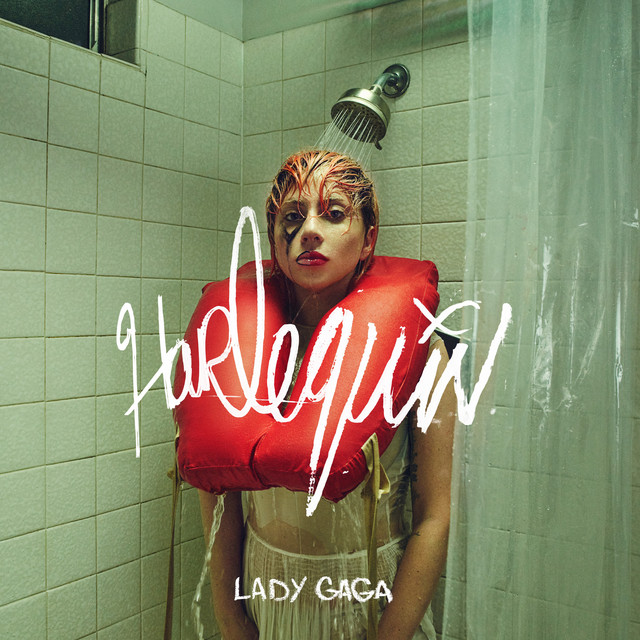Rock resurfaces with Rage, STP and Foo Fighters records
November 3, 1999
Daily Staff Writer
“The Battle of Los Angeles”
Rage Against The Machine
Earlier this year, Rage Against The Machine played a benefit show for political prisoner Mumia Abu-Jamal put on by the Beastie Boys’ Adam Yauch.
Rolling Stone was there to review the show and proved to be critical of Rage’s outspoken politics, as well as the event in general. The magazine credited Rage’s mass following to the band’s ability to rock, not the message behind their music.
“It’s not that you believe what they’re saying,” the reviewer quipped, “It’s that you believe that they believe what they’re saying.”
Although Rage’s outspoken lead guitarist Tom Morello doesn’t deny his band rocks harder than any political band, he also feels their music isn’t the only thing that impacts listeners.
When Guitar Magazine asked, “How many minds could one band possibly change?,” Morello’s answer was nothing short of quotable.
“I see the answer to that question every day when I read Rage’s fan mail,” Morello answered. “In the real life world of grassroots activism, there absolutely is a connection between the politics of Rage Against the Machine and political activity.”
Rage Against The Machine’s proven ability to rock combined with their political lyrical substance is just about enough to make their third full length release, “The Battle of Los Angeles,” a historical document in and of itself.
The album, which was scheduled for release in October of 1998, was delayed for over a year. Rumors of a temporary breakup of the band flew, but the holdup can truly be attributed to vocalist Zack de la Rocha spending months perfecting his lyrics for the album, among other things.
“The Battle of Los Angeles” proves a sheer success for the band, both musically and lyrically. Backed by bassist Tim Commerford’s lines and drummer Brad Wilk’s beats, Morello’s genre-creating guitar licks prove to be unchanging, staying true to the style of music the band has pioneered.
A track-by-track breakdown of the album would be a daunting task, as each song on “The Battle of Los Angeles” contains enough originality and innovation to write a thesis on.
De la Rocha raises questions to be pondered by entire governments and individuals alike, while Morello’s talents have guitar effects companies creating pedals exclusively designed to emulate the exact sounds he creates.
With the band’s first single, “Guerilla Radio,” already getting heavy play on MTV and radio, Rage is getting more attention than ever before.
Not to say that Rage converts every listener into an angry political activist, or even the majority of them, “But you know what?” Morello tells Guitar Magazine, “If it’s only five percent of our audience and we sell eight million records, it’s a considerable number.”
4 1/2 STARS
— Sam Johnson
“No. 4”
Stone Temple Pilots
Scott Weiland, in all of his jaded hairdos and primadonna garments, resides in pop culture prison as one of the greatest tragedies in ’90s rock.
He is the Robert Downey Jr. of music.
Weiland’s talents, whether he’s burning the wicked garden or headlining Madison Square Garden, have always been tugged up under the sheet of his drug-addicted ghost.
And when Weiland manages to sneak out from his own shadow, he steps flatly into those of his grunge peers — the holy trinity known as the Cobain, the Cornell and the Eddie Vedder.
Weiland’s greatest strength has always been the emotion he draws from his many voices. Before Nirvana or Pearl Jam ever went unplugged, he had already delivered “Plush” in an acoustic alter-ego that shook several layers off the Grammy-winning original.
And whether it was the slow, melodic drawl on “Big Empty” or the pop-punk flavor on “Big Bang Baby,” Weiland has carried his Stone Temple Pilots on a rock roller coaster that refuses to stop.
Fred Durst rapped it best — “Scott Weiland the melody man/ If you can’t sing it/ Nobody can.”
On “No. 4,” the Pilots surprise reunion record (though some could argue they never officially broke up), Weiland’s vocal prowess is not as dominant.
With the exception of “Atlanta,” where the frontman does a dead-on Jim Morrison, and “I Got You,” which draws more influence from campfire folk than headbanger rock, Weiland primarily wears his aggrorock hat, ala Alice In Chains/Creed.
If there’s “Barbarella”-like soul anywhere on “No. 4,” it doesn’t surface after a handful of listens. Ultimately, the record is a bit bland.
“Down” kicks off with brothers DeLeo, the primary music writing duo in STP, showcasing a guitar and bass bond that hasn’t been this tight since the “Core” days. Dean even interrupts the garden-variety tune with an Eddie Van Halen-influenced solo.
But as a single, the tune falls far below radio candy hits like “Vasoline” and “Big Bang Baby.”
“Glide” is the record’s only standout track, with props out to a contagious chorus and, of course, Weiland’s tuneful words of wisdom. “Run to the place that hides the pain inside,” he croons. “Cover my chain it hides the strain only to glide.”
“No. 4” glows when Weiland steps out of the fire, which unfortunately, isn’t often.
2 1/2 STARS
— Corey Moss
“There is Nothing Left to Lose”
Foo Fighters
“There is Nothing Left to Lose” carries all the energy and creative passion one expects from the Foo Fighters. Dave Grohl has outdone himself on this one by getting back to basics.
The entire album is an attempt to make a statement about the pretensions of modern rock, and it succeeds by setting an example for others to follow.
Foo Fighters revive the hard rock guitar as THE instrument to be dealt with as they kick it loose track after track with a combination of old-school energy and alternative angst, backed by unrelenting drum work and competent, if not inspired, bass.
“There is Nothing Left to Lose” combines the influences of Ted Nugent and Alan Parsons Project with a little bit of Foghat thrown in for good measure. It hearkens back to a time when music was made by guys with instruments and not computers or DJs.
Foo Fighters scream and hop around on this album with all the youthful abandon of a Boy Scout jamboree on electric Kool-aid.
Occasional tracks such as “Next Year” get so slow as to bring things to a near halt, but things soon get picked back up by the next track as is the case with “Headwires,” which manages to capture much of the excitement of past singles.
There is nothing to lose by this album and Foo Fighters have managed to pull another great one out from wherever they get their inspiration.
4 STARS
— Greg Jerrett
“Shapeshifter”
Marcy Playground
There’s more to Marcy Playground than “Sex and Candy,” the titanic hit that stayed afloat on pop radio for over a year.
John Wozniak, the genius behind the band that was more a bundle of collaborations than an actual band, had an entire collection of clever pop treasures on his self-titled debut.
But Marcy Playground was deemed a one-hit-wonder faster than you can say “I like sex and candy.”
“Shapeshifter,” which has Wozniak teamed up with bassist Dylan Keefe and drummer Dan Rieser, finishes the job “Marcy Playground” started in validating the band’s many talents.
What made “Sex and Candy” so fun was Wozniak’s endless trail of double entendres, which are just as widespread on “Shapeshifter.”
“Sunday Mail” is a clever take on the pain of waiting for mail (“It never comes,” Wozniak wails), while “Secret Squirrel” examines the silliness of superheroes.
“It’s Saturday,” the opening track and first single, owes its inspiration to Shel Silverstein’s classic poem, “Sick.”
On the tune, Wozniak takes on the role of a kid who claims, “Mom I’m dying/ I’m dizzy and frying/ My throat hurts/ I think I should stay in bed,” but miraculously recovers on Saturday.
Musically, the band doodles in the same creative playground as Folk Implosion and Cake, where guitar riffs sound more like Beck out-takes than Jeff Beck.
Wozniak’s voice won’t win awards for being soothing, but the rawness works with the music.
“Shapeshifter” is welcome evidence that pop creativity is not old hat.
4 STARS
— Corey Moss
“Falling Into Place”
Mike Viola and the Candy
Butchers
Mike Viola must have been raised on a steady diet of The Replacements, The Beatles and good ol’ pop rock. Catchy guitar riffs and lyrical hooks abound in his band’s debut release, “Falling Into Place.”
With the pop sensibility of both Pauls — Westerberg and McCartney — rather than the pop annoyance of Britney Spears or ‘N Sync, Viola and his band create songs that listeners would actually want to get stuck in their heads.
Carefully crafted around solid melodies, their future pop hits are decidedly enjoyable. Standing out are the hum-inducing, made-to-be-heard-on-a-car-radio title track and the somewhat silly, yet completely sincere love song, “All I Have.” Danceable in the ’50s sense of the word, the song bounces along, complete with surf-inspired guitars.
Slower rock ballads that are anything but clich‚ coincide with goofier, punk-infused songs that feature horns.
“I Don’t Know Anything” contains a chorus that finds Viola drawing on old school rock ‘n’ roll pop singing “Fa na na na na” repeatedly. It sounds goofy, and it is. But it also works, seeming neither contrived, nor out of place.
Raspy, Rod Stewart-like vocals succeed in providing a voice for the record that is comfortably familiar, but not overly derivative.
Viola discovers a “Rubber Soul”-era Beatles sound on “Too Much Going On,” another one of the quality three-minute smiles that frequent “Falling Into Place.”
“We all want something to make us feel better,” begins the opening lyrics to “Let It Ride.” That something is indeed the new album from Mike Viola and the Candy Butchers.
3 1/2 STARS
— Jon Dahlager
“Nightlife”
Pet Shop Boys
The Pet Shop Boys return with their 12th studio album, and what new sounds and experimentation have the techno-pop duo attempted with this record?
Absolutely none.
The British band has delivered boppy upbeat electronic dance music for over 18 years, and they cease to break new ground with “Nightlife.”
Carrying only one major single in the United States, the 1984 anthem “West End Girls,” the Pet Shop Boys became the synth-pop standard that every other ’80s band with a synthesizer and British accent strived to become.
In an age of thousands of nameless bands making generic and oversimplified music, you’d think that veterans like the Boys would make the move to another creative level.
As noble as the Pet Shop Boys have stuck to their roots, the music they produce continues to sound almost identical to previous albums.
In all fairness, the electronic dance music has intense beats and pumping synthesizers that have the power to conjure up dance moves in even the most anti-dance floor wallflower.
“For Your Own Good” starts the disc out with the traditional one-two beat and Neil Tennant’s crying in his monotone nasal vocals.
Successful moments are captured in “New York City Boy,” where The Village People’s “Macho Man” gives birth to a bastard child of pulsing orchestral crashes, funky bass and shouting chorus.
“Radiophonic” presents itself as an organ infested world of mysterious choir voices and rubbery bass drums. Meanwhile, the familiar Pet Shop Boys vocals claim, “I think I’m in love.”
For the most part, “Nightlife” only labels the band as the Pet Shop Boys we’ve chewed up and spit back out. Failure to break new ground in the familiar techno-pop regime will hardly gain the embrace of the guitar loving American music scene.
1 STAR
— Ryan Rogness
“Hot Show”
#Prozzak
It begins as an epic tale of yore. Two young warriors are transported from a battlefield of long ago and brought to the present to create music that details none other than their tales of love and loss. Their names are Milo and Simon.
So, it doesn’t sound as epic as this duo would have us believe, but the efforts of Milo and Simon in evolving a theme into their album, which includes both spoken word and pulsating techno beats, is commendable.
The record comes to life with “Europa,” a song that pumps steadily while the Pet Shop Boys-sounding Simon sings his song of lost love. The tune has some definite Latin sounds weaving through it, which is surprising considering Milo and Simon’s thick British accents.
Another dead giveaway to these guys’ British roots comes by way of the song “Shag Tag (You’re It).” Where was this song when Austin Powers needed it? This song is one strange trip down the annals of sex play.
Many of the songs on “Hot Show,” including the first single, “Strange Disease,” and “Omobolasire,” with its groovy pulse, are pretty good tunes. Even the power ballad “New York,” with it’s overly-galvanized vocals that make it sound a little too metallic, holds its own.
However, the album also has its share of filler space.
These poor examples of songwriting include “Sucks To Be You,” which should aptly be named “Sucks To Be This Song,” and “Sleep With Myself.” The latter just reeks because Simon has the audacity to further his ego trip by refusing to sleep with a woman because he’s loved and lost thousands of times before.
One definite song to watch out for is the earth-shakingly sincere ballad “Anna-Lisa.” Simon’s real human emotions seep through on this heart-wrencher that is definitely worth a second listen.
Overall, Prozzak’s energetic and rave-thumping “Hot Show” is a good representation of how far two really frickin’ warped guys can go with digitally processed music.
Despite the very original idea of telling a story through the music, this album comes off a little more cold than hot.
2 STARS
— Kevin Hosbond






